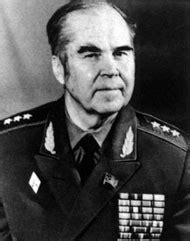A Quote by Hannah Arendt
Revolutions are the only political events which confront us directly and inevitably with the problem of beginning.
Related Quotes
Before, revolutions used to have ideological names. They could be communist, they could be liberal, they could be fascist or Islamic. Now, the revolutions are called under the medium which is most used. You have Facebook revolutions, Twitter revolutions. The content doesn't matter anymore - the problem is the media.
The old terms must be invented with new meaning and given new explanations. Liberty, equality, and fraternity are no longer what they were in the days of the late-lamented guillotine. This is what the politicians will not understand; and that is why I hate them. They want only their own special revolutions- external revolutions, political revolutions, etc. But that is only dabbling. What is really needed is a revolution of the human spirit.
History reminds us that revolutions are not events, so much that they’re processes – that for tens of thousands of years, people have been making decisions that irrevocably shaped the world that we live in today; just as today, we are making subtle, irrevocable decisions that people of the future will remember as revolutions.
For hundreds of millions of people, the fall of the Berlin Wall was a great triumph: The moment marked the end of hated dictatorships and the beginning of a better era. But for the KGB officers stationed in Dresden, the political revolutions of 1989 marked the end of their empire and the beginning of an era of humiliation.
It is not given to us to grasp the truth, which is identical with the divine, directly. We perceive it only in reflection, in example and symbol, in singular and related appearances. It meets us as a kind of life which is incomprehensible to us, and yet we cannot free ourselves from the desire to comprehend it.
As in political revolutions, so in paradigm choice--there is no standard higher than the assent of the relevant community. To discover how scientific revolutions are effected, we shall therefore have to examine not only the impact of nature and of logic, but also the techniques of persuasive argumentation effective within the quite special groups that constitute the community of scientists.







































